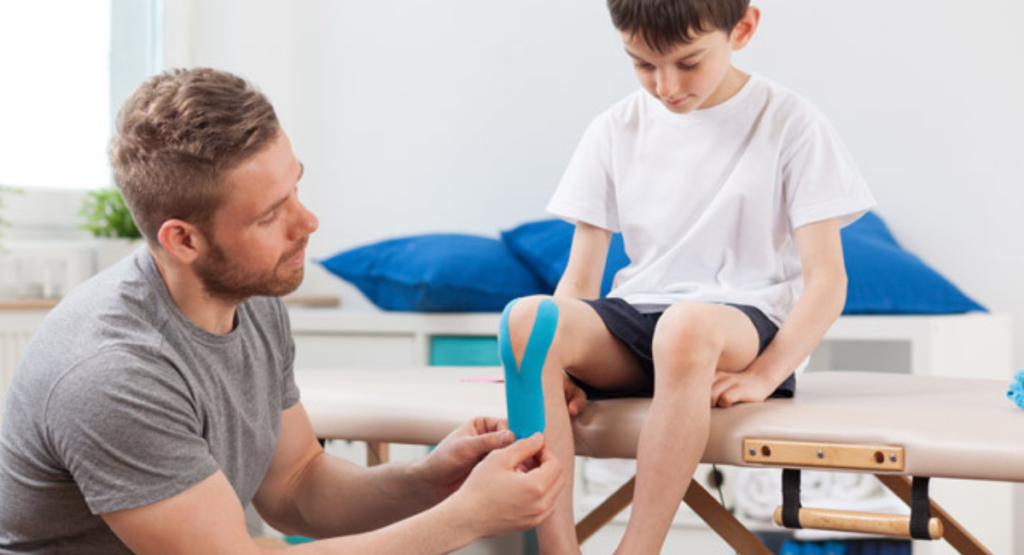In the realm of healthcare, paediatric physiotherapy stands as a beacon of hope for children facing various physical challenges. From congenital disabilities to injuries and developmental delays, this specialized branch of physiotherapy offers tailored interventions to enhance the physical well-being and quality of life of young individuals. In this article, we delve into the profound benefits of paediatric physiotherapy, exploring its role in empowering young lives, and understanding the significant impact it can have on children’s health and development.
Understanding Paediatric Physiotherapy
Paediatric physiotherapy focuses on addressing movement difficulties and promoting optimal physical function in infants, children, and adolescents. Unlike adult physiotherapy, paediatric physiotherapy takes into account the unique needs of growing bodies and developing minds. It encompasses a wide range of conditions, including neurological disorders, musculoskeletal issues, orthopaedic conditions, respiratory problems, and more.
Benefits of Paediatric Physiotherapy
Improved Motor Development:
One of the primary goals of paediatric physiotherapy is to facilitate proper motor development in children. Through targeted exercises, therapists help children develop essential motor skills such as crawling, walking, running, and jumping. Early intervention can significantly enhance motor function, allowing children to participate more fully in daily activities and social interactions.
Enhanced Functional Abilities:
Children with physical disabilities or injuries often face challenges in performing routine tasks independently. Paediatric physiotherapy aims to improve functional abilities by focusing on activities of daily living (ADLs). Therapists work with children to improve their balance, coordination, strength, and endurance, enabling them to participate actively in school, play, and recreational activities.
Pain Management:
Chronic pain can significantly impact a child’s quality of life and hinder their ability to engage in physical activities. Paediatric physiotherapists employ various techniques to alleviate pain and discomfort, including manual therapy, therapeutic exercises, and modalities such as heat and cold therapy. By addressing pain effectively, children can experience greater comfort and mobility.
Prevention of Secondary Complications:
Certain conditions, such as cerebral palsy or muscular dystrophy, may predispose children to secondary complications such as muscle contractures, joint deformities, and respiratory issues. Paediatric physiotherapy plays a crucial role in preventing or minimizing these complications through early intervention and proactive management strategies. By addressing underlying musculoskeletal imbalances and promoting optimal alignment and movement patterns, therapists help reduce the risk of secondary problems.
Support for Developmental Milestones:
Children achieve various developmental milestones as they grow, including rolling over, sitting up, crawling, and walking. However, some children may experience delays or difficulties in reaching these milestones due to various factors such as prematurity, neurological conditions, or musculoskeletal issues. Paediatric physiotherapy provides targeted interventions to support children in achieving these milestones at their own pace, fostering independence and confidence.
Promotion of Participation and Inclusion:
Every child deserves the opportunity to participate fully in school, sports, and social activities. Paediatric physiotherapy promotes inclusion by equipping children with the skills and confidence they need to engage in various activities alongside their peers. Therapists collaborate with families, educators, and other healthcare professionals to create supportive environments that accommodate the unique needs of each child.
Family-Centered Care:
Paediatric physiotherapy embraces a family-centered approach, recognizing the crucial role of parents and caregivers in the child’s rehabilitation journey. Therapists educate families about the child’s condition, teach them therapeutic techniques and exercises, and provide ongoing support and guidance. By empowering families, paediatric physiotherapy extends its impact beyond the clinic walls, fostering continuity of care, long-term success, and highlighting the Benefits of Paediatric Physiotherapy.
Conclusion
In conclusion, paediatric physiotherapy plays a vital role in empowering young lives by promoting physical function, independence, and overall well-being. Through early intervention, personalized treatment plans, and a holistic approach, paediatric physiotherapists help children overcome physical challenges and achieve their full potential. The Benefits of Paediatric Physiotherapy are manifold, ranging from improved motor skills and coordination to enhanced social interaction and confidence. By investing in the health and development of our youngest generation, we pave the way for a brighter and more inclusive future.
We are India’s first comprehensive continuum care provider. We provide multidisciplinary out of hospital care to acute and post-acute and chronically ill patients at our critical care facilities and your home.


